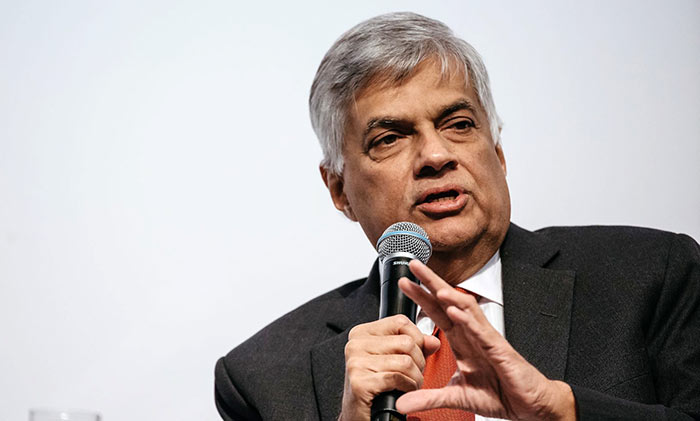Sri Lanka’s prime minister says his country isn’t nearly as vulnerable as others claim

Sri Lanka’s prime minister shot back at economists who called out the country as among Asia’s most vulnerable to global emerging market volatility.
The South Asian nation is building longer term financial stability by diversifying its exports beyond tea and apparel and into higher-value goods and services, Prime Minister Ranil Wickremesinghe told CNBC on the sidelines of the World Economic Forum on ASEAN in Hanoi, Vietnam on Tuesday.
Despite concerns voiced earlier this month by ratings agency Fitch about a “challenging” external debt servicing outlook, high government debt and political uncertainty following regional polls, Wickremesinghe said he didn’t believe Sri Lankan sovereign bonds were on the verge of a downgrade.
“We and many others are running deficits in Asia and that certainly would be a matter of concern, but so far we have been able to negotiate with the rating agencies and it has certainly not affected our borrowing capacity,” he said.
Sri Lanka’s government debt remains high at around 77 percent of GDP.
Japanese bank Nomura Holdings on Monday identified Sri Lanka as one of 30 emerging markets most susceptible to an exchange rate crisis, a claim vehemently denied by Sri Lanka’s central bank and Wickremesinghe, who called it “false.”
Both took particular exception at Nomura’s initial short-term external debt estimate of $160 billion, a figure Nomura later admitted was inaccurate. The bank issued a corrected number of $7.5 billion as of the first quarter. When asked about the official figure, Wickremesinghe put it at $14.2 billion, though the time period was unclear. The higher number could also be due to officials using a broader measure of external debt.
Sri Lanka, bailed out by the International Monetary Fund in 2009 and mid-2016, should not need further support from the global lender, the prime minister said.
“We have been going to the IMF a bit too often … Sri Lanka and Pakistan, and I hope that we will be able to manage,” he said. “(The) IMF saved us at a crucial period, I must acknowledge it, but we must learn now to go on our own.”
Relationship with China
Wickremesinghe denied the oft-cited claim that Sri Lanka was ceding control of strategically vital ports to Chinese control and said he didn’t believe the country was falling into a debt trap caused by high-interest Chinese loans.
“We are dealing with China. There are a fair amount of Chinese investments. There are China loans…I can’t see it as a threat.”
Sri Lanka and China have agreed to a 99-year lease of the southern Hambantota port. That underlines China’s growing strategic and commercial influence in the Indian Ocean region, and has caused increasing anxiety in neighboring India and the broader region. For one, Japan wants Hambantota port to be “free of military activities,” Japanese Defense Minister Itsunori Onodera said last month, according to a report by the Press Trust of India.
“We don’t foresee any issues by looking at this from an economic project, as an economic investment,” Wickremesinghe said. “Sri Lanka has been unaligned and have stayed that way since 1948.”
Sri Lanka’s opposition, led by former President Mahinda Rajapaksa, is capitalizing on economic hardship, mobilizing supporters to pressure the government into holding early polls. Wickremesinghe, however, said he “can’t see an early election.”
He claimed his government inherited debt racked up through the mismanagement of the prior administration. “We took over the government and stabilized the economy …they ran away, we were the only ones left.”
(CNBC)

Latest Headlines in Sri Lanka
- UN pledges support for Sri Lanka’s industrial and SME development March 13, 2025
- Former Boossa Prison Superintendent shot dead in Akmeemana March 13, 2025
- Police search Sagala Ratnayaka’s residence amid hunt for IGP Deshabandu Tennakoon March 13, 2025
- Another Middeniya triple murder suspect arrested at BIA while fleeing March 13, 2025
- Court of Appeal to rule on IGP Tennakoon’s arrest warrant on March 17, 2025 March 12, 2025



No No No it is not so vulnerable as some say. Only vulnerable enough to raid people’s pension pots.